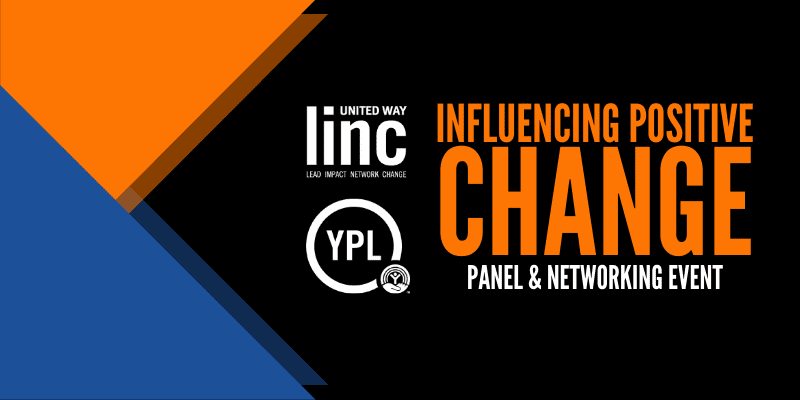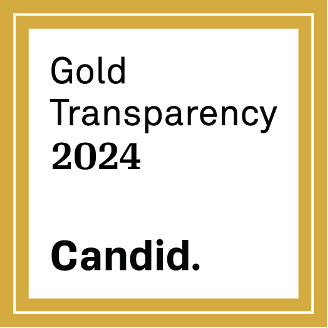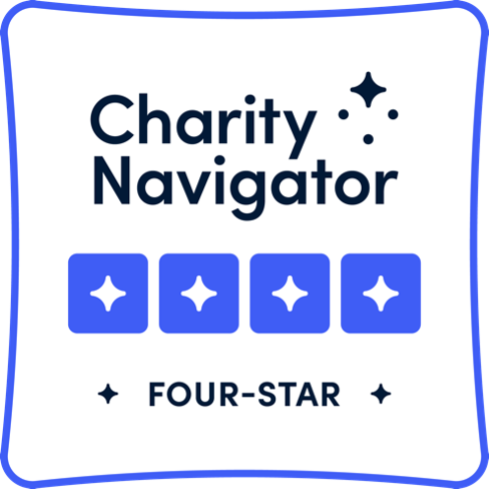Everyone’s eyes were on the political landscape in Georgia a few short months ago. There was a lot of focus on how we could make an impact on a much larger scale.
But how do we continue this momentum and the discussion of issues that directly affect Georgians? How do we transition this to a larger movement to drive engagement and encourage lasting change?
In order to influence positive change, you need to be proactive. United Way of Greater Atlanta’s Young Professional Leaders and LINC affinity groups met last week to discuss that next plan to action in an “Influencing Positive Change” virtual panel led by Tharon Johnson, CNN contributor and CEO of Paramount Consulting, and Rev. James Woodall, Georgia NAACP President.
Much of the change in Georgia in the past few years could be directly related to the “young coalition of voters,” and grassroots campaigns, Johnson says.
So, the talk centered around that role young professionals can play in influencing change around state and local policies that directly impact children, families and their communities across Greater Atlanta.
One way to do this is through advocating for policy that helps address disparities in our community, Johnson says.
“We got to talk about the changing demographics in [Georgia], and where there were a lot of things that white people didn’t know existed, it was brought to the forefront when we saw the unrest that was going on in this country,” Johnson says. “What I was most proud of, was how the young people stood up and peacefully protested to make sure [this] remained at the forefront.”
He said this was part of what drove people in Georgia to the polls, specifically in Black communities, and then stressed the importance of staying tuned into what was happening at the state level currently with any legislation that would potentially “disenfranchise voters of color.”
“In order to influence change, we have to educate ourselves on the change,” says Jasmine Morgan, a YPL member and senior training consultant for IHG Hotels and Resorts’ Hospitality Young Professionals Exchange (HYPE) group. “This [social] was informative and collaborative, and we got the community involved from the standpoint of having experts at the table to drive conversations around things we as young professionals may not have thought of or been exposed to before.”
IHG was a sponsor for the event, and Morgan says the partnership with YPL was a natural one because it aligned with HYPE’s mission to bring together people who have a shared passion around improving their community.
“This event has really gotten to people,” says Morgan, who leads a remote-based team spread out across the U.S. “We’ve been talking so long about how we influence positive change — whether that be ending racial discrimination, our own unconscious bias — but how do we do it? How do I make myself a part of the fight and a part of the solution?
“Sometimes if you don’t talk to people, nothing happens, and nothing moves forward.”
Attendees were encouraged to become a part of the solution by joining United Way and its work to provide a Brighter Future for neighborhoods in South DeKalb, South Fulton and Clayton Counties — all areas with low child well-being scores.
United Way of Greater Atlanta has recently aligned its work to invest in four priority areas to improve the well-being of children, families and their communities across Greater Atlanta. United, we can make sure children have more. More opportunities, more resources, more chances to grow up as strong learners who are college and career ready. We can also make sure families that are economically stable and set up for more success in the future.
And young people in this country are “literally at the forefront” of this movement to push toward a more equitable Atlanta and a more equitable Georgia, Woodall says. We just have to continue that fight and “right the line,” he says.
“When we are gone to be in glory, we’ll all be able to look down the corridors of history and see our children hollering out in our memory because we didn’t give up,” Rev. Woodall says. “We stayed true to who we thought we would be, we stayed consistent in our pursuit of liberty and justice for all people. That’s what we’re fighting for.”
This was the challenge Woodall left the group with, and Lauren Rock, Director of Individual Engagement in the Office of Development for United Way, says she’s been overwhelmed by the positive response from this discussion.
She said now the goal is to connect with all of those who attended and then introduce them to the work United Way is doing in specific communities where we are fighting to drive equitable recovery and end racial disparities. Now’s the time to inform people about how they can get involved by becoming an advocate and volunteering.
“YPL already has touch points in Clayton County, and we’re all wanting to see the impact in those areas,” Rock says. “We’re continuing this engagement and introducing Brighter Future to people, telling them why this is important and what we’re supporting.
“Beyond that, we’re having conversations at the board level, finding ways to connect with the Clayton County Brighter Future Youth Leadership Council and the work they are doing so that we might support them and amplify their voices. We want to give people the opportunity to plug in.”
Eesha Sasumana, an analyst working for IHG and a HYPE member, was impressed by the event and United Way’s broad vision for the future.
“I think United Way has done an amazing job bringing about positive change to the Greater Atlanta region, particularly in the arena of developing children, young adults and the leaders of tomorrow,” Sasumana says. “I believe continuing that momentum of developing young minds and helping them reach new heights is an invaluable resource and there are always new avenues to explore such as mentorship, skills workshops and professional development opportunities.”
One of the most powerful messages from the panel discussion for Sasumana was that even though much has been done and progress has been made, “it is important to recognize there is still more room to grow.”
There are more opportunities to address disparities and promote equality.
“When the panelists were asked for specific work those interested in influencing change can do to improve their communities and play a part in the larger movement, the panelists stressed that any activity is better than none,” Sasumana says. “They continued with a call to action, sharing resources for on advocacy efforts, tracking current legislation as well as media materials to help stay up to date on current events in this space.”
To learn more about continuing this work and how to get involved, join the LINC and Young Professional Leaders affinity group.





